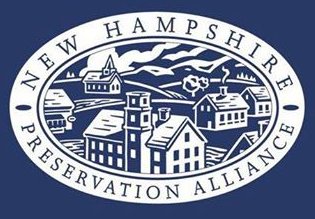Scamman Family Continues Strong Stewardship of Historic Farm Outbuilding – One of 52 Barns in 52 Weeks
The Scammans of Stratham will continue their stewardship of a family farm that dates to 1665 with repairs to a c. 1750 barn, the oldest structure we’ve showcased during our 52 Barns in 52 Weeks campaign, and one of the oldest documented barns in the town of Stratham. This whitewashed, English style barn is part of the Scamman Farm, a local landmark on Route 108. “We love the farm, the old buildings, have added over 200 acres of our land into conservation with the goal to keep agriculture alive along with preserving history for the Town of Stratham,” Stella Scamman writes of the farm her family has been operating since the 1970s. The farm dates to the mid-17th century when Richard Scammon (a distant relative) settled the land. Stella Scamman and her husband Doug, along with their children, ran it as a dairy farm from the 1970s to 1999. The property is now run by the next generation as a hay and pumpkin farm with seasonal features that engage the community, including a 6+ acre corn maze, farmers market, and school visits.
The Scammans applied for a grant from the NH Preservation Alliance in order to assess their 32’ X 44’ barn. Like many barn owners, and especially those with a working farm, they are looking to make “needed repairs in the most efficient and cost effective way that will retain the historical character of the barn while making it fit for continuing use.” Currently it is in use as storage for equipment, and for honor system egg sales. There is evidence that this barn has had many uses in its three centuries, such as for housing chickens, apple storage, and potting and planting. Its loft, running the entire length of the barn, is accessed by a wide substantial staircase that indicates it was built for storing hay, grain or other produce.
The mini-grant from the Preservation Alliance introduced the Scammans to antique building specialist Bob Pothier of First Period Colonial Preservation/Restoration. Pothier found the early hand-hewn frame to be in good condition, so he recommended that the repairs should start with addressing the sinking fieldstone foundation. The foundation is in poor condition, covered almost entirely by earth affecting the corner posts and sills, causing the walls to bulge and joints to pull apart. The Scammans have plans to move forward with these foundation and sill repairs.
Repairing this barn is phase one for the Scamman Family. Their next goal is to rehabilitate the adjacent larger mid-19th century Yankee style barn. The farm was determined eligible for the National Register of Historic Places in 1998. “The surviving farmstead complex retains its original integrity remarkably well,” says Nathan Merrill, chairman of the Stratham Heritage Commission. “The rambling Greek Revival house, English barn, Yankee barn, and chick hatchery all remain in the original, compact farmstead area. While the surrounding landscape has changed dramatically with commercial development over the past 50 years, the Scamman Farm remains a scenic oasis that is enjoyed by the tens of thousands of people who travel Route 108 every day.” The Scammans plan to work with the Heritage Commission to move forward toward the National Register listing in 2018.
Visit the Scamman Farm in Stratham and online
The goal of 52 Barns in 52 Weeks is to help at least 52 barn owners across the state with assessment grants, assistance in securing tax relief, and educational opportunities to help save their historic barns. Throughout 2017, barns and their owners have been showcased by the Preservation Alliance to celebrate good work and offer practical information and inspiration to others.
We are grateful to all of our donors to date, and encourage others to add their support with an investment in the 52 Barns in 52 Weeks campaign so we can do more!


